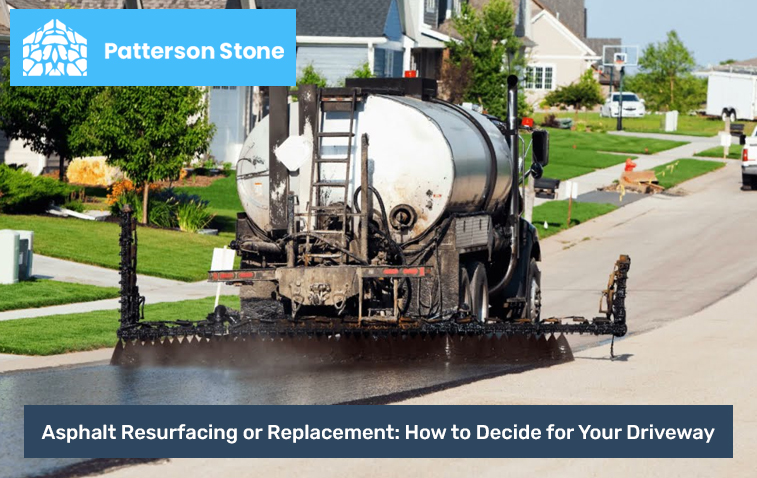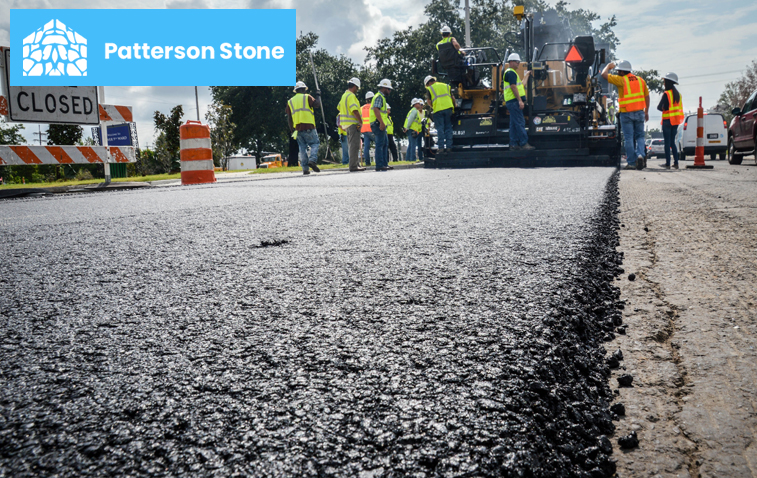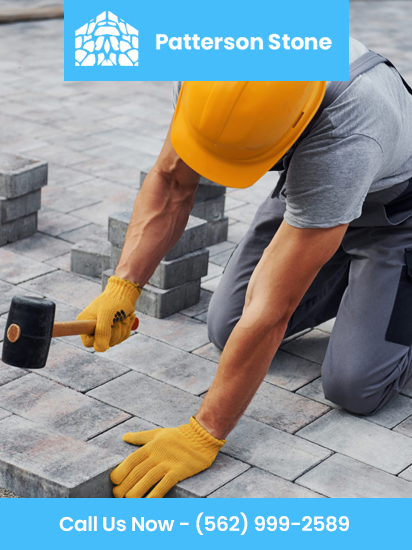Asphalt Resurfacing or Replacement: How to Decide for Your Driveway
Your driveway is the first thing people see when they visit your home. It’s important to keep it in good shape. You might wonder if you should resurface or replace your driveway. Both options have pros and cons.
Resurfacing is like giving your driveway a facelift. It adds a new layer on top of the old one. This makes it look better and can fix small problems. Replacement is more drastic. It means taking out the old driveway and putting in a new one. This is a bigger job but might be needed for serious damage. Let’s dive into the details of each option. This way, you can make the best choice for your home.

What is Asphalt Resurfacing?
Asphalt resurfacing is a process that adds a new layer of asphalt on top of the old one. It’s like putting a new coat of paint on your walls. This new layer covers up small cracks and holes. It makes your driveway look fresh and new again. Resurfacing is quicker and cheaper than replacing the whole driveway. It’s a good option if your driveway is in pretty good shape but just looks worn out. However, resurfacing won’t fix serious problems. If there are big cracks or potholes, you might need more than just a new layer. It’s best for driveways that have small issues and need a little bit of care.
Benefits of Resurfacing
Resurfacing has many benefits. Here are some of the main ones:
- Cost-Effective: Resurfacing is cheaper than replacing. You save money because you’re adding a layer, not starting from scratch.
- Quick Process: It takes less time to resurface a driveway. This means you can use your driveway sooner.
- Improves Appearance: Resurfacing makes your driveway look new again. It’s a great way to boost your home’s curb appeal.
These benefits make resurfacing a popular choice for many homeowners. It’s a simple way to improve your driveway without spending too much time or money.
When to Choose Resurfacing
You should choose resurfacing if your driveway has small cracks and holes. It’s also a good option if your driveway is less than 20 years old. Older driveways might need more than just a new layer. Resurfacing works well if the base of your driveway is still strong. If there are big cracks or the surface is uneven, resurfacing might not work. You should also think about the weather. Resurfacing works best in warmer months. Cold weather can make the new layer crack.
What is Asphalt Replacement?
Asphalt replacement is a bigger job. It means taking out the old driveway and putting in a new one. This process is like getting a whole new driveway. It’s needed when there is serious damage. Replacement can fix big cracks, potholes, and other problems. This is a long-term solution. It’s more expensive and takes more time than resurfacing. However, it can make your driveway last much longer. If your driveway is in really bad shape, replacement might be the best option.
Benefits of Replacement
Replacement also has many benefits. Here are some key ones:
- Long-Lasting: A new driveway will last longer. It’s a long-term solution for serious problems.
- Fixes Major Issues: Replacement can fix big cracks and potholes. It’s the best option for serious damage.
- Increases Value: A new driveway can increase your home’s value. It makes your property look well-kept and cared for.
These benefits make replacement a good choice for driveways with serious issues. It’s a bigger investment but can save money in the long run.
When to Choose Replacement
You should choose replacement if your driveway has big cracks or potholes. It’s also a good option if your driveway is more than 20 years old. Older driveways might need a complete overhaul. Replacement is needed if the base of your driveway is weak. If there are signs of serious damage, replacement is the best option. You should also think about the weather. Replacement can be done in any season. However, it might take longer in cold weather.
Comparing Resurfacing and Replacement
Let’s compare resurfacing and replacement. This can help you decide which is best for your driveway.
| Factor | Resurfacing | Replacement |
| Cost | Lower | Higher |
| Time | Quicker | Takes longer |
| Fixes Small Issues | Yes | Yes |
| Fixes Big Issues | No | Yes |
| Lifespan | Shorter | Longer |
As you can see, both options have pros and cons. Resurfacing is cheaper and quicker. It’s good for small issues. Replacement is more expensive and takes longer. However, it can fix serious problems and lasts longer.
Both resurfacing and replacement have their benefits. Resurfacing is a good option if your driveway has small issues and is less than 20 years old. It’s quicker and cheaper. Replacement is best for serious problems and older driveways. It takes more time and money but can last much longer. Think about the condition of your driveway and your budget. This will help you make the best choice. Your driveway is an important part of your home. Keeping it in good shape will make your home look great and last longer.
FAQs
Spring and summer are ideal due to warmer temperatures. Cold weather can affect the asphalt’s ability to bond properly.
A well-maintained replacement can last 20-30 years. Regular maintenance is crucial to achieving this lifespan.
It’s best to wait at least 24-48 hours before driving on it. This allows the asphalt to set and cure properly.
Look for cracks, potholes, and drainage issues. If you notice these signs, it’s time to consider resurfacing or replacement. Regular maintenance can prevent severe damage.

